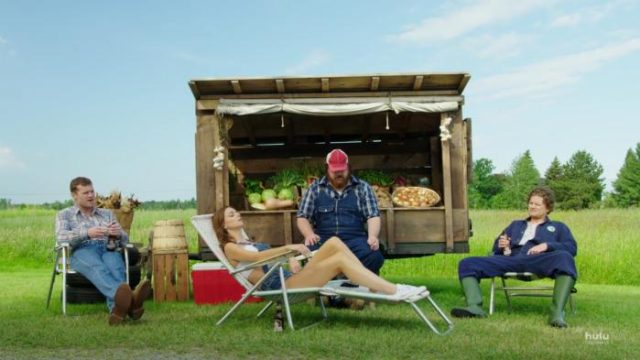Though I have lived in a small town, I don’t have any particular nostalgia for it. It was a toxic environment where everyone knew your business and you couldn’t escape your mistakes unless you moved away. At that, Port Angeles, Washington, is four times the size of the fictional Letterkenny, Ontario. It’s much larger than Possum Lake or even, presumably, Port Asbestos. Twin Peaks is about the same size as Letterkenny, unless you believe the sign, and Cicely, Alaska, is doubtless considerably smaller.
I suppose part of the appeal is that it feels as though it would be hard to be lonely in Avonlea. Sure, everyone would know everything about your ancestors going several generations back, unless you were From Away, but at least you wouldn’t have to explain all that stuff when you first met someone. Sure, you’d have to watch your back in Cabot Cove, but you would be able to say hi to a dozen people as you walked down the street. No wonder Wanda chose to deal with her grief that way; small towns in fiction are cozy and familiar.
They’re also ideally suited for secrets, of course. Arcadia Oaks. Twin Peaks. In college, I heard an X-Files episode described by our local station as being about a mysterious force killing people in a small town, and my friend and I spent several enjoyable minutes suggesting which episode it could be. (I don’t now remember what it actually was!) Because it can both be something half the cast knows about and still mysterious, because “half the cast” is a dozen people who make up a substantial percentage of the population of the town. Eureka, Oregon, is explicitly a town where everyone is in on the secret but no out-of-towner needs to be.
All TV shows have the choice of “insular” or “anthology,” to be fair. Friends is set in Manhattan and is insular; Law & Order is set in Manhattan and is anthology. The show doesn’t have to be set in a small town to feature the same handful of people over and over again; most shows are set in a small town and feature the same handful of people over and over again. Is the Arconia not its own version of a small town, after all, just one that happens to be in the middle of a megalopolis? But it’s more immediate when it’s actually insular, like the Rez, where you know the odds of meeting a stranger are considerably lower.
Not all of my favourite TV shows are set in small towns, of course. Joan of Arcadia is in Baltimore and Due South is in Chicago, and of course Perry Mason is in Los Angeles. But it’s no wonder so much of Quantum Leap and The X-Files happened in small towns. There’s something comforting to shows set there, even if you know without seeing the episodes about it all the ways that actual small-town living can deeply suck.

